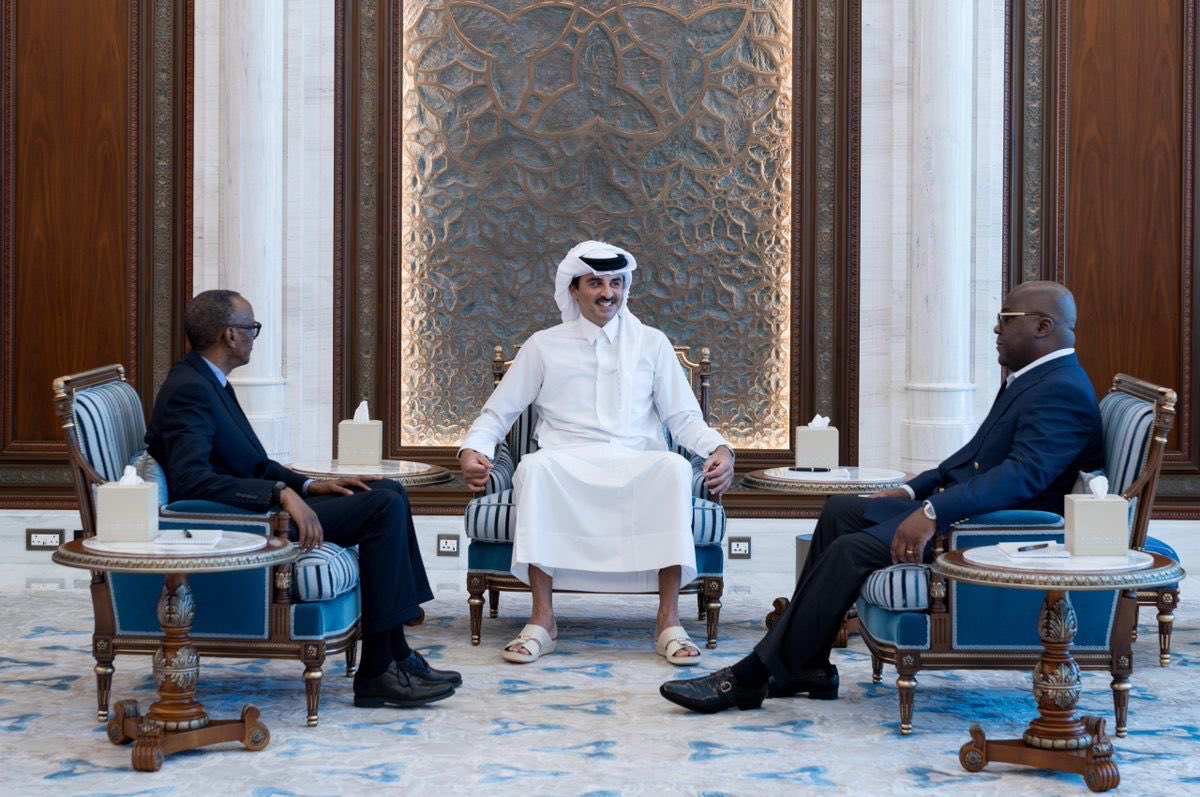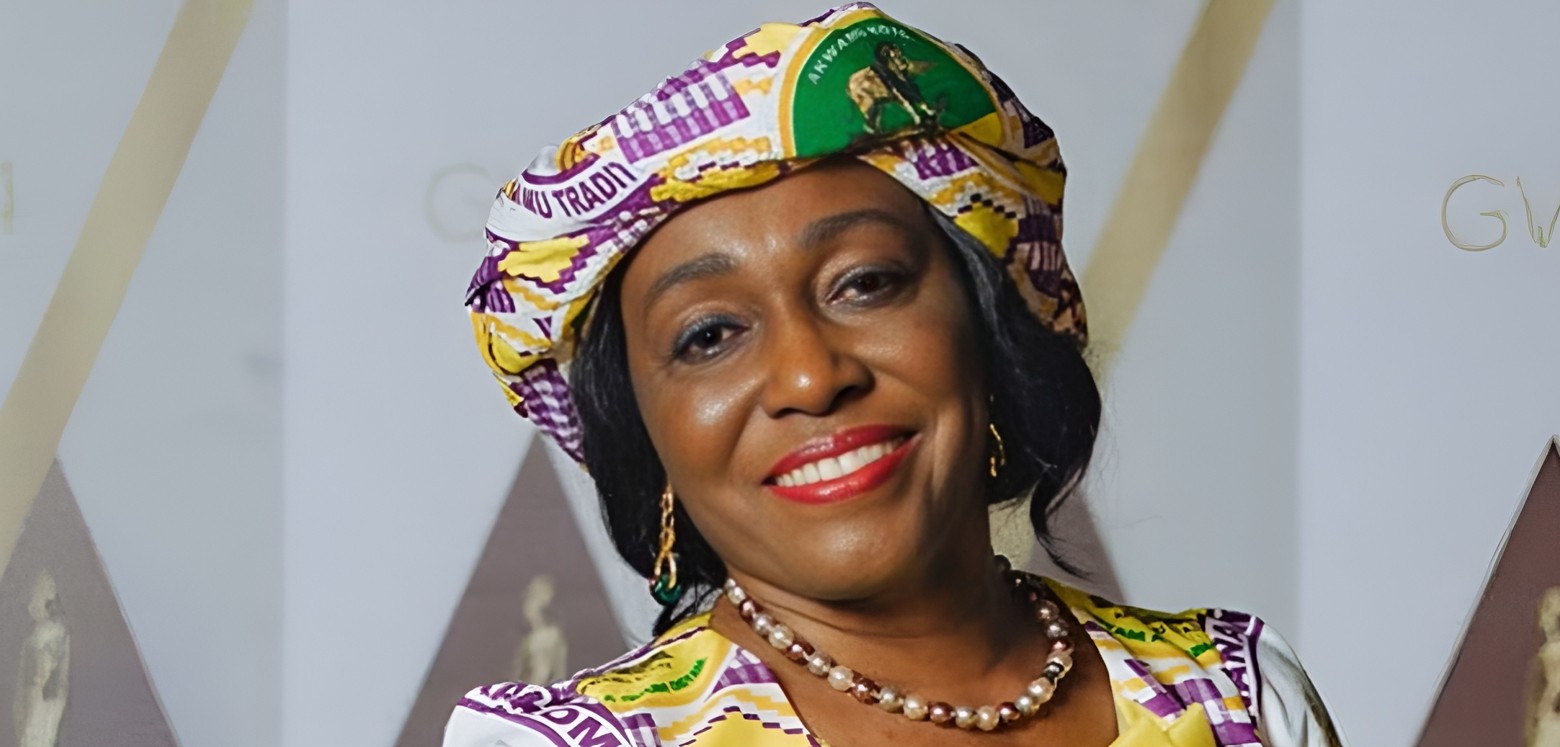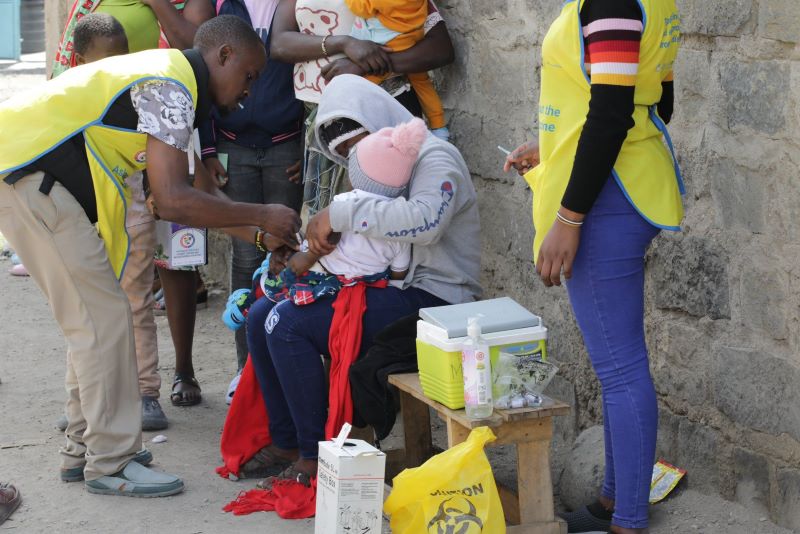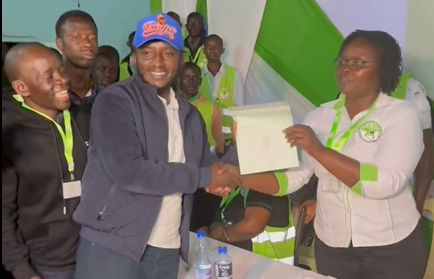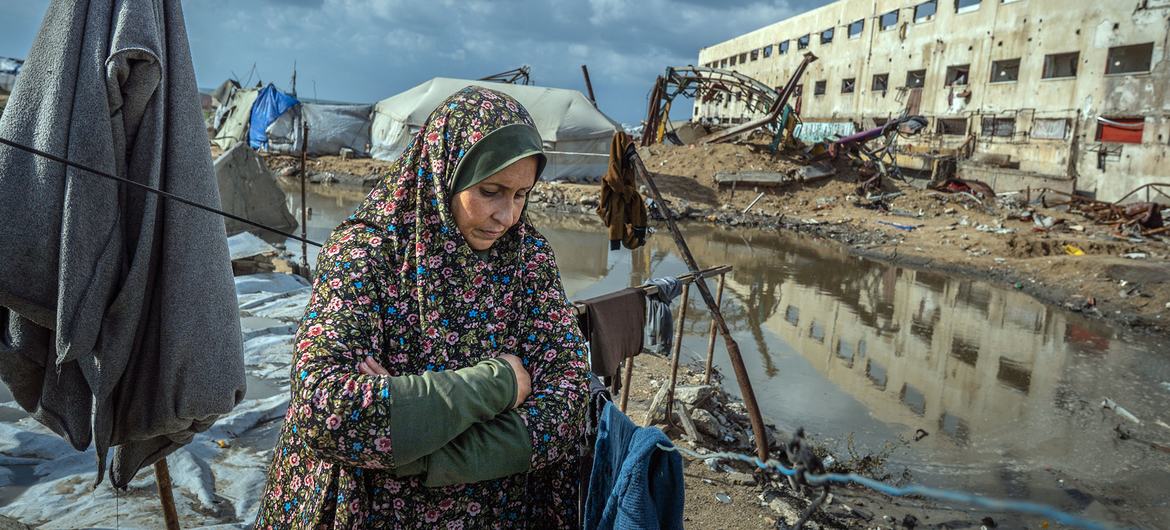Beyond 'Kifo Kisimani': Inside the mind of Kenya’s literary titan, Prof Kithaka wa Mberia
Arguably one of Kenya's best-selling authors, Prof Kithaka noted that his works often predict political events in Africa; his book Mchezo wa Karata anticipates coups and civil wars, while Msimu wa Tisa foresaw conflicts like those in the Democratic Republic of Congo (DRC).
When The Eastleigh Voice sat down with Prof Kithaka wa Mberia at the University of Nairobi's Department of Linguistics and African Languages, he spoke passionately about his work, explaining why it continues to evoke national consciousness.
As he settled into the interview in his unassuming office filled with newly published titles and classic works, the towering literary figure repeatedly underscored that he has several writings other than Kifo Kisimani, a set book for seven years in Kenyan secondary schools.
More To Read
- Top 10 most used languages for web content
- Chimamanda Ngozi Adichie honoured with two European literary awards
- NoViolet Bulawayo wins the best of 25 years of the Caine Prize: Why she deserves it
- Africa’s Sh905 billion book industry faces challenges despite growth potential - UNESCO
- Kenya Publishers Association honours Ngugi wa Thiong’o with Hall of Fame induction
- Ngũgĩ wa Thiong’o among 180 nominated for 2025 national heroes list
Opening up about his lifetime dedication to literature on social and political realities, Prof Kithaka offered a serving of poetic wisdom that writers differ; some write to please their audience and gain financially, while others write from the heart, reflecting their lived experiences.
“I write what is in my heart, about the country I live in and the issues that affect me as a Kenyan and African,” said Prof Kithaka, seated against the backdrop of his ubiquitous shelf of research works, each book a testament to his incredible ability to tell stories.
Arguably one of Kenya's best-selling authors, Prof Kithaka noted that his works often predict political events in Africa; his book Mchezo wa Karata anticipates coups and civil wars, while Msimu wa Tisa foresaw conflicts like those in the Democratic Republic of Congo (DRC).
He recalled how a Cameroonian friend, whom he gifted one of his translated books, was astonished by the similarities between events in his country and the themes in the book. Prof Kithaka's translated works into English include Death at the Well, Natala, Flowers in the Morning Sun, A Game of Cards and Another Continent. Natala, which was picked as a set book, just like Kifo Kisimani, explores gender issues.
"Coups and civil wars in various African countries have been reflected in my books. If you read Mchezo wa Karata, you will be surprised. Likewise, if you consider the situation in the Democratic Republic of Congo and read Msimu wa Tisa, you’ll wonder how I knew about these events before they happened," said Prof Kithaka.
The professor said his writings also challenge political leaders, who he believes might seek to ban his books because they expose societal ills and raise awareness among citizens.
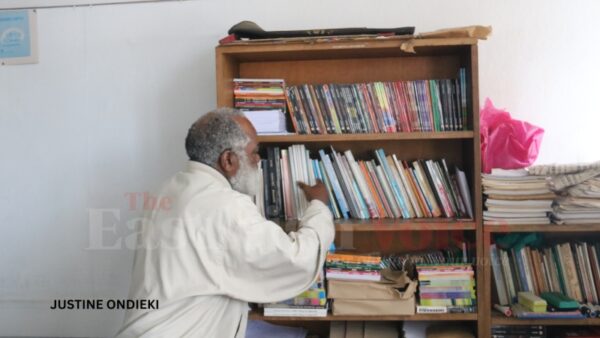 Professor Kithaka wa Mberia in his office. (Photo: Justine Ondieki)
Professor Kithaka wa Mberia in his office. (Photo: Justine Ondieki)
"Someone once told me that Kifo Kisimani would not be accepted as a set book in some East African secondary schools because readers might see 'Bokono', a central character, as a leader in their own country. Similarly, they might view 'Mwelusi' as one of their own," he noted.
Prof Kithaka explained that his writing is not intended to target any individual. He said he avoids composing poems or plays aimed at specific people, as he believes doing so would be tantamount to an abuse of art and creativity.
"I know politicians will try to have the book banned from school curricula because they fear it might incite the masses. But I write from my heart. I do not write to entertain politicians; I write for the benefit of the people and the generations that will come after me," said Prof Kithaka.
The writer, whose poetry anthologies include Mchezo wa Karata, Bara Jingine, Redio na Mwezi, Msimu wa Tisa and Rangi ya Anga, added: "If my works were encouraging young people to engage in social ills, I would deeply regret my actions. But if they serve to inform and open their eyes to important issues, then I believe I have made a positive contribution to society."
The astute linguist and father of two reiterated that his style combines critical thought with creativity in social critique, encouraging the audience to critically reflect on pressing socio-political issues.
"If it's not for church and other religious places, in other fields, people hate boredom. In literature, if you have a critical message to pass across, using humour is sometimes the best way to pass such messages."
The Fulbright Scholar-in-Residence, who taught at Virginia State University between 2005 and 2006, went on to advocate for Kiswahili, which he has taught internationally, including in South Korea and Poland, highlighting its importance as one of the world’s most widely spoken languages.
"Kiswahili is the seventh or eighth most widely spoken language in the world, with around 200 million speakers. This vast number makes it an important language globally. Although it is Kenya's primary language of communication, its significance extends beyond the country, spoken across other continents as well. I have taught English at a university in South Korea for two years and have also taught Kiswahili in Poland and the United States," said Prof Kithaka.
Top Stories Today
